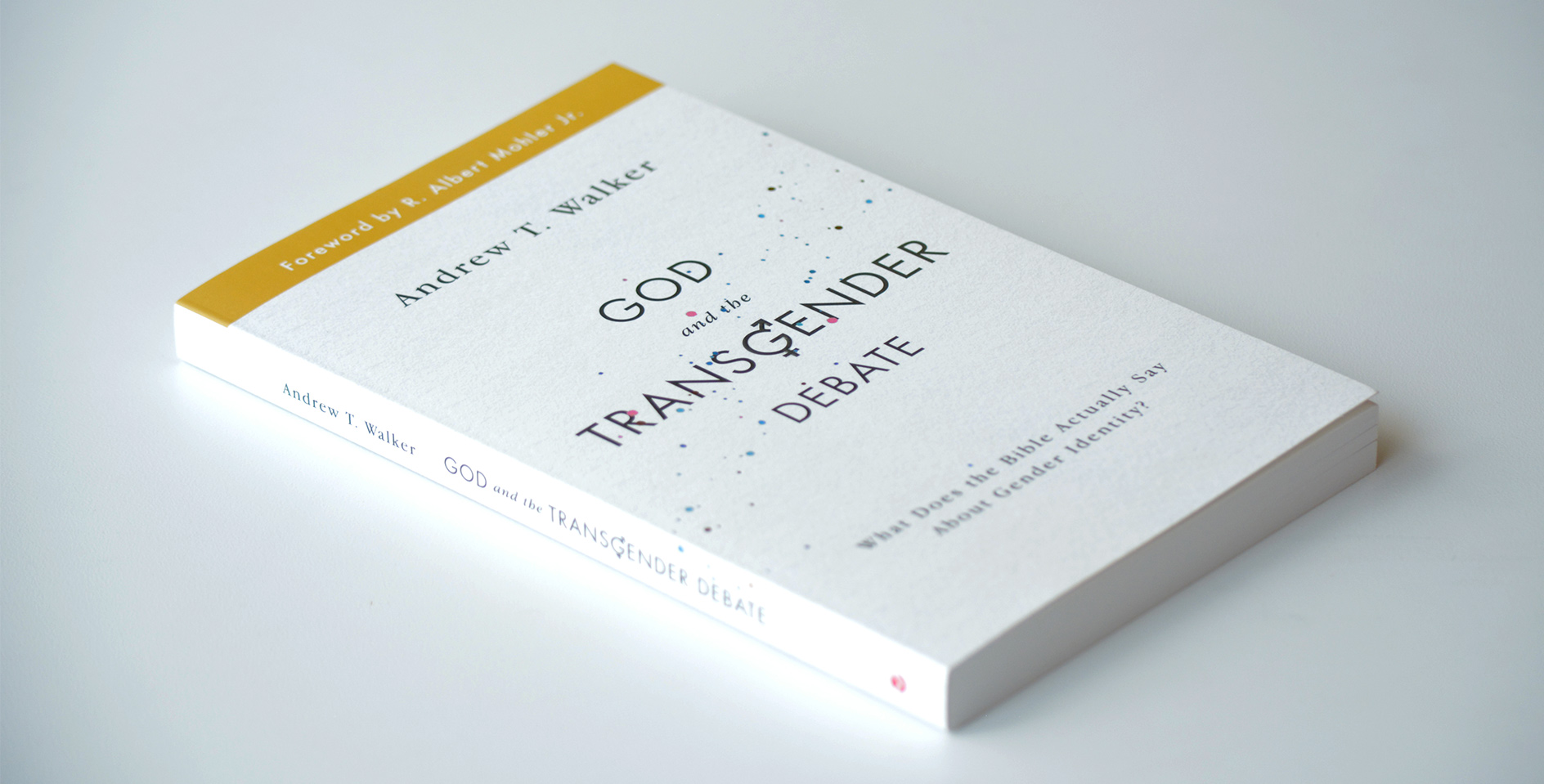The pace at which the transgender debate has been thrust on American culture has left most Americans, and especially most Christians, playing catch-up. It’s hard to keep up with the expanding vocabulary of sexual identities. Perhaps most of all, Christians find it difficult to express objections to evolving gender identity norms when authority on one’s gender identity is mediated through personal experience.
The weight of personal testimony raises a good question that Christians must answer if we are going to be faithful to the Bible’s view of sex and gender: If a person who desires to live as a member of the opposite sex says “This is how I feel” or “This is how I was born,” how should Christian respond in heartfelt compassion when people wish merely to live out the identity they believe will bring them happiness and joy?
We must first begin by understanding how a common story underwrites everyone’s experience.
As I lay out in my forthcoming book, God and the Transgender Debate, Genesis 1 and 2 offers a picture where gender and biological sex are connected. This means that in the uncorrupted world of Genesis 1 and 2, an accurate view of how sex and biology should be related is depicted.
Creation did not stay uncorrupted. Rebellion occurred, and disorder resulted.
Then the eyes of both were opened, and they knew that they were naked. And they sewed fig leaves together and made themselves loincloths. (Genesis 3:7)
The first result of the first rejection of God by Adam and Eve in Genesis is that people feel ashamed of, and awkward in, their bodies. Something went awry between the person’s experiences of who they are and what their body is. This wasn’t gender dysphoria per se, but it does testify to the reality that in a fallen world, our fallen sense of self manifests itself in an alienation from our bodies.
Genesis 3 means that everything went haywire. In a fallen creation, it should be expected that individuals would experience a sense of alienation between their biological sex and their perceived gender.
This is why the “I was born this way” argument holds so much sway, but remains problematic. In a fallen world, people are going to experience all sorts of different feelings about themselves. And in a very real way, all people are “born that way”—but we’re “born that way” because we are distorted versions of our created selves.
Nothing about experiencing the world through a particular feeling demands that we accept those feelings as normative and praiseworthy. People are born with all sorts of afflictions and predispositions that do not produce joy and wholeness. Whatever “we are born with” is to be evaluated by Scripture.
The sense of gender severed from biological sex is a product of the fall.
And the same is true for people who experience gender dysphoria.
The sense of gender severed from biological sex is a product of the fall. It is a product of our bodies and our minds not aligning like they would in a sinless world. It was not God’s intention for human beings to experience self-alienation in this manner.
But taking extreme measures to bring one’s body into alignment with one’s gender identity is not what will solve the deeper issues of living in a world marred by sin.
Our hearts are deceived
Beloved, I urge you as sojourners and exiles to abstain from the passions of the flesh, which wage war against your soul. (1 Peter 2:11)
The Bible teaches that inside every person’s heart, there’s a war; and the heart is both the culprit and the victim. Why? Because every person’s heart is ravaged by sin. There is an ongoing battle within the heart that wages war with our conscience in order to prevent us living by God’s commands.
Sinful hearts manifest themselves in the darkest crevices of human experience.
The types of sins our hearts can concoct are infinite.
We cannot trust our feelings or all the passions that reside within us just because they occur. Not every impulse we experience should be indulged. Each of knows this is true; but the challenging aspect of our current cultural moment is that society rages on in debate about whether, how, and what impulses should be embraced.
The prophet Jeremiah reminds us: The heart is deceitful above all things, and desperately sick; who can understand it? (Jeremiah 17:9)
Because our heart is a factory of fallen desires and idols, the Bible instructs us to be suspicious about “listening to our hearts” since our hearts can lead us astray. Even more, our heart’s desires can be at war with what is actually good for us. If we take the Bible at its word (and we should!) we ought to be suspicious of what our hearts tell us.
The nature of deception is to convince us we will not be satisfied unless we indulge what our heart desires. But our hearts lead us astray in countless ways. Consider envy. Envy robs people of joy and contentment, sours friendships, and can lead to compromising morality in order “to get ahead.” Envy does not produce flourishing or joy in people. Indulging envy only results in misery for yourself and others. But none of us think this way as envy rages on. In the moment, the wrath and bitterness of envy assuages the sense of loss and jealousy residing within each of us.
What does this have to do with gender dysphoria?
In the same way that fallen desires pervade all of our hearts, individuals with gender dysphoria can experience real moments of distress about their gender identity. They are authentic experiences where their heart’s desire is telling them one thing about themselves while their body is saying something else.
But to indulge in a desire that would lead to living out of step with one’s biological sex is to violate God’s will for creation – and this is because the Bible’s portrait of humanity never severs or disconnects sex and gender.
I am not suggesting that individuals who experience gender dysphoria are guilty of more sin than anyone else.
What I am suggesting is that the impulse to live out an identity at odds with biological sex is to indulge fallen desires that our heart believes will bring peace. But internal longing for peace does not mean that finding peace is possible if it means violating the boundaries of human limitations. For example, individuals who undergo sex re-assignment surgery do not, statistically, report higher levels of happiness after the surgery.[1] This is completely explicable from a Christian worldview. How so? Because the Bible tells us that embracing a desire at odds with the Creator’s design will never bring ultimate happiness. The passion to live as a member of the opposite sex isn’t simply satisfied by surgically altering one’s body. There are deeper issues at stake than exterior, physical, and cosmetic alterations.
Experiencing fallen passions does not mean that one is immediately guilty of sin. Indulging a fallen passion by feeding it or acting upon it is, however, sinful.
Individuals who experience gender dysphoria are not sinning when such experiences occur—despite those feelings only occurring in a world marked by sin. But regarding such feelings as determinative of one’s true identity, when the body indicates otherwise, is sinful.
Our minds are confused
Now this I say and testify in the Lord, that you must no longer walk as the Gentiles do, in the futility of their minds. They are darkened in their understanding, alienated from the life of God because of the ignorance that is in them, due to their hardness of heart. (Ephesians 4:17-18)
Without God in the picture, our reason is impaired. We can think brilliantly, but not necessarily truthfully. Why? There is futility in our reason because it leaves out the Creator in trying to understand the creation and the creatures. There is a kind of groping around for answers that cannot be found, like blundering around in the dark in the middle of the night, trying to find the light switch, in a room without switches. And this springs from the fact that our hearts are hardened – since our hearts are driven by our rejection of God, so our minds must be too. This explains why atheist scholars like Richard Dawkins can be both very clever and very blind – because his cleverness is all being used in the service of his passion to reject God. His reasoning is persuasive to many, but it is also fatally impaired. Reasoning without God tends to run up blind alleys.
The Bible places a priority on the mind because it is the processing center of how change is made in the heart. Through our mind, we are able to reason and think.
In many ways, the heart and mind work in tandem. Our hearts can have a pull or attraction or desire toward one thing, but our mind might know that such attraction or desire should not be acted upon.
The Bible, however, paints a picture of the mind falling prey to confusion, deception, and rebellion much in the same way that our hearts and affections are susceptible.
Our fallen minds manifest brokenness in a number of ways.
Stress. Depression. Anxiety. Self-esteem.
Every one of us struggles with some type of psychological insecurity. Each of us just knows that our emotions and psychological states are volatile and vulnerable. One moment your mind can rejoice at the happiness of seeing your young child at play; but in the next moment harness crushing insecurity about one’s self-worth.
Individuals who experience gender dysphoria are experiencing a different type of psychological stressor than you or I might experience.
Or our minds believe lies. Think of people with hallucinations. Their minds perceive something they believe is real, but it isn’t.
Our minds are capable of, and responsible for, processing the experiences that some individuals translate as gender dysphoria. It is very important to consider that a person who experiences these feelings does not believe that their mind is lying to them, because the feeling is very much real.
The question, though, is simple: Why should the mind get to determine whether someone is really a member of the opposite sex? Indeed, this is one of the controlling factors of the debate.
Bodies cannot lie to us, but our minds can.[2] A person cannot change their personhood by simply choosing a new identity.
There is no compelling argument to accept the validity of someone “identifying” as a member of the opposite sex than his or her own biological sex.
To accept the philosophy of transgenderism is to accept a philosophy that has no limitations and ends in absurdity. A viral video from 2016 shows a young Caucasian man in his thirties interviewing college students at an American university demonstrating the slippery slope of taking the implications of transgender ideology to its logical conclusions.
Look in the mirror
When we think about transgenderism, we cannot begin by pointing our fingers at someone else. Why? Because we all inhabit a creation married by sin, and a creation whose brokenness we contribute to by the capacity of our own sinful choosing. The same reasons that cause people to experience a sense of distress between their gender and their sex are the same as the reasons that cause each of us to sin in unique ways, so we must see that everyone is equal at the foot of the cross.







